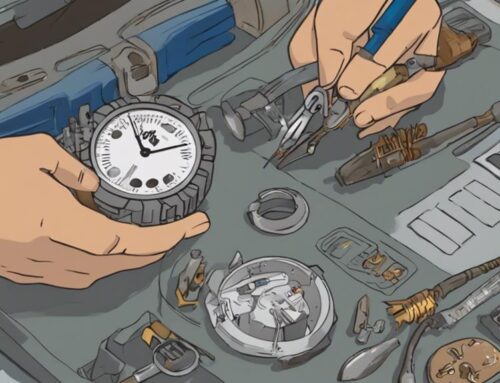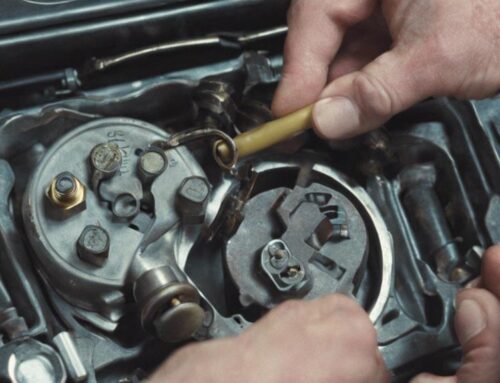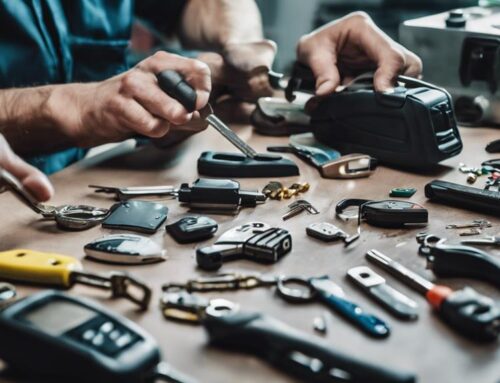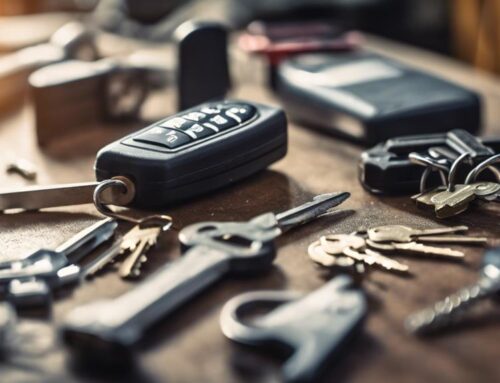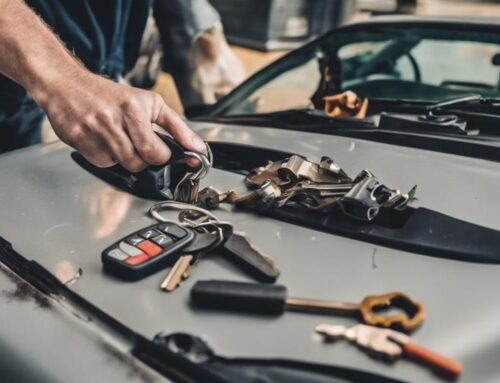A transponder key is a type of car key that includes a coded electronic chip to enhance vehicle security. This chip communicates with your car’s anti-theft system, allowing the engine to start only if the correct code is transmitted. If the keys are duplicated or replaced, they must be programmed to sync with your vehicle’s system. Skilled locksmiths have the necessary tools and expertise to program these keys effectively. They use specialized diagnostic equipment to guarantee the key functions correctly with your car’s security system. Knowing more about this process might help you manage your car’s security needs more effectively.
Defining Transponder Keys
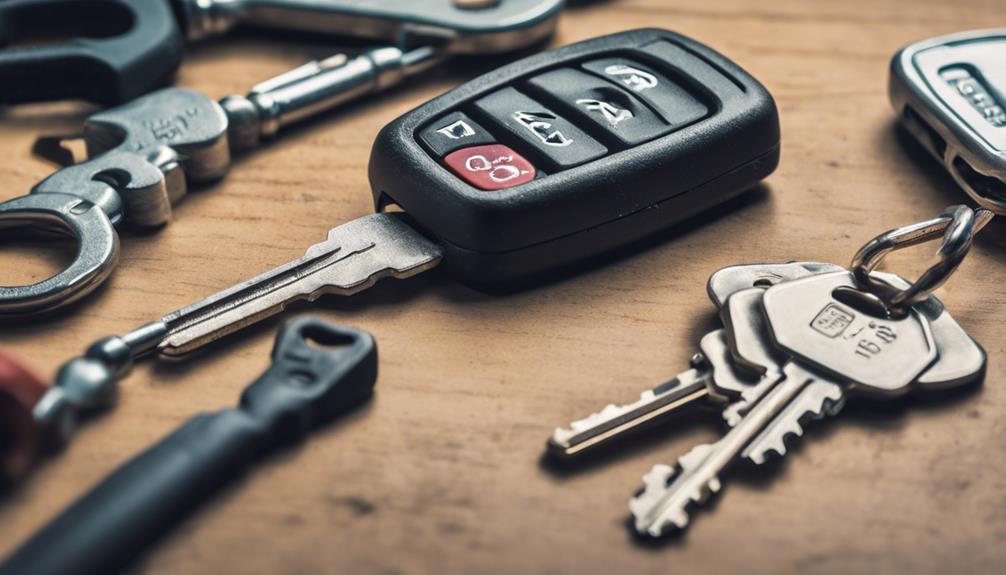
A transponder key, your car’s guardian against theft, is equipped with an electronic device that enhances security by transmitting a unique code to start the engine. Think of it as a bouncer at a club, except instead of checking IDs, it’s ensuring no one nicks your ride. This key’s electronic chip sits snugly inside, whispering secrets to your car’s anti-theft system to verify its identity. If the chip and the system are on good terms, your engine roars to life; if not, it’s silent treatment time! Now, don’t fret if you lose this high-tech key—locksmiths have the programming mojo needed to whip up a new one, keeping your car secure and you, well, mobile!
How Transponder Keys Work

Transponder keys kick into action by sending a unique password to your car’s anti-theft system, ensuring only you can start the engine. Nestled within your key fob, the electronic chip is the secret agent in this security saga. When you turn the key or press the start button, this chip wakes up and chats with your car’s security system. It’s like the bouncer at a club checking your ID. If the password’s a match, you’re in; no match, no engine start.
Duplicating these high-tech keys isn’t a DIY job. It requires specific programming procedures and fancy equipment because, let’s face it, you wouldn’t want just anyone copying your house key, right? This tech wizardry has put a serious dent in car thefts, proving that a little chip can pack a mighty punch against crime.
Benefits of Transponder Keys
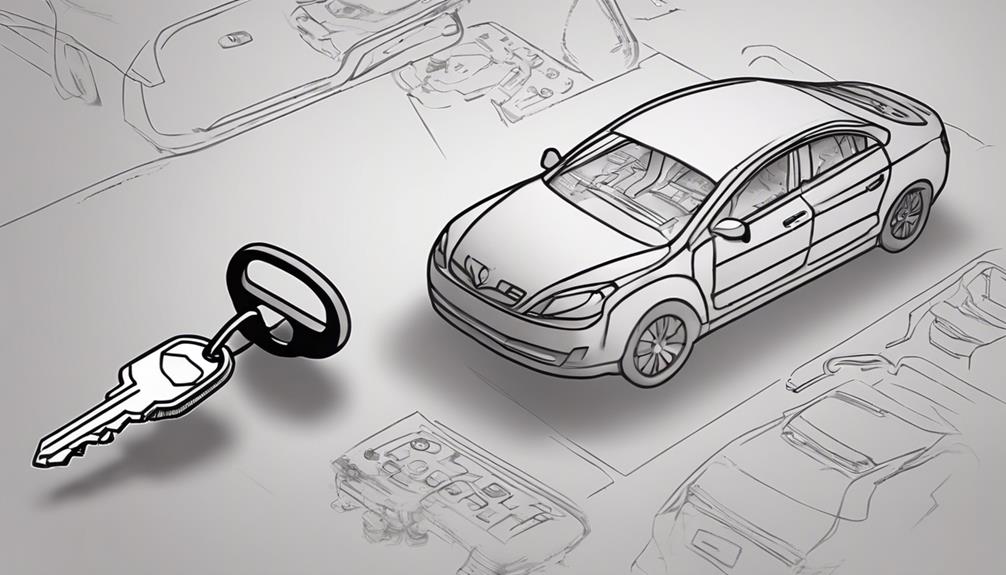
You’ll enjoy enhanced security when using transponder keys, as they require precise electronic verification to start your vehicle. In essence, your car and key have a secret handshake—if the chip inside your key doesn’t send the right signal, your ride’s going nowhere. Think of it as a bouncer at the club of your car’s engine; no VIP pass, no entry. This nifty feature drastically cuts down the risk of theft, since hot-wiring is off the table. And just in case you’re wondering, yes, a skilled locksmith can program these high-tech marvels. So, if you’re into keeping your vehicle as theft-proof as possible, embracing the transponder life is a no-brainer!
Identifying Transponder Equipped Vehicles
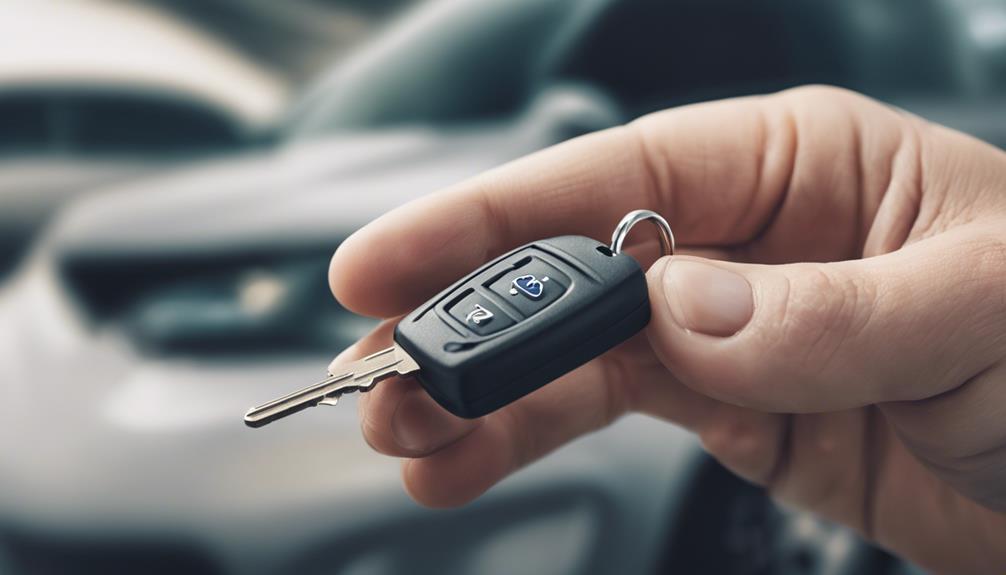
To determine if your vehicle is equipped with a transponder system, start by recognizing the key features; look for a plastic or rubber head which often indicates a transponder chip inside. You can also check your vehicle’s documentation for mentions of transponder or immobilizer systems. Finally, an automotive diagnostic tool can display indicators to confirm the presence of a transponder system.
Recognizing Key Features
Several indicators can help you determine if a vehicle is equipped with transponder keys. First off, don’t chop up your key to find a chip—that’s a one-way ticket to buying a new one! Instead, you might notice the key has a beefy head with a rubber or plastic shell; that’s housing for the high-tech goodies inside. This isn’t your grandpa’s metal key, folks! Automotive locksmiths are the wizards here; they can confirm if you’re dealing with transponder technology without turning your key into an expensive paperweight. Also, if using a plain old key leaves your car cold and unresponsive, it’s likely shouting, “Hey, I need that fancy transponder key, buddy!” Keep it smart, keep it running.
Checking Vehicle Documentation
Check your vehicle’s documentation or owner’s manual to find out if it uses a transponder key system. If your car is a bit of a diva and likes to keep its secrets under wraps, the owner’s manual is your backstage pass to all the juicy details. You’re looking for any mention of transponder key compatibility or hints that your car’s security is more high-tech than a simple metal key.
Don’t see anything? No worries! Grab your VIN and hit up your friendly neighborhood locksmith or the dealership. They’ve got the know-how to confirm whether you’re part of the transponder club or just rolling old school. It’s like a secret handshake, but way cooler.
Diagnostic Tool Indicators
If your vehicle’s documentation left you in the dark about whether it uses a transponder key system, diagnostic tools can provide the answer. These handy gadgets are like the detectives of the automotive world, sniffing out whether your key houses a sneaky transponder chip. So, if you’re puzzled about your key’s capabilities, just whip out a diagnostic tool and let it do the sleuthing. This savvy move not only uncovers the mystery but also lets locksmiths get a clear picture of your key programming requirements. Knowing this can streamline the whole process, making programming transponder keys a breeze. So, next time you’re in doubt, let the tools talk and save the day!
The Programming Process
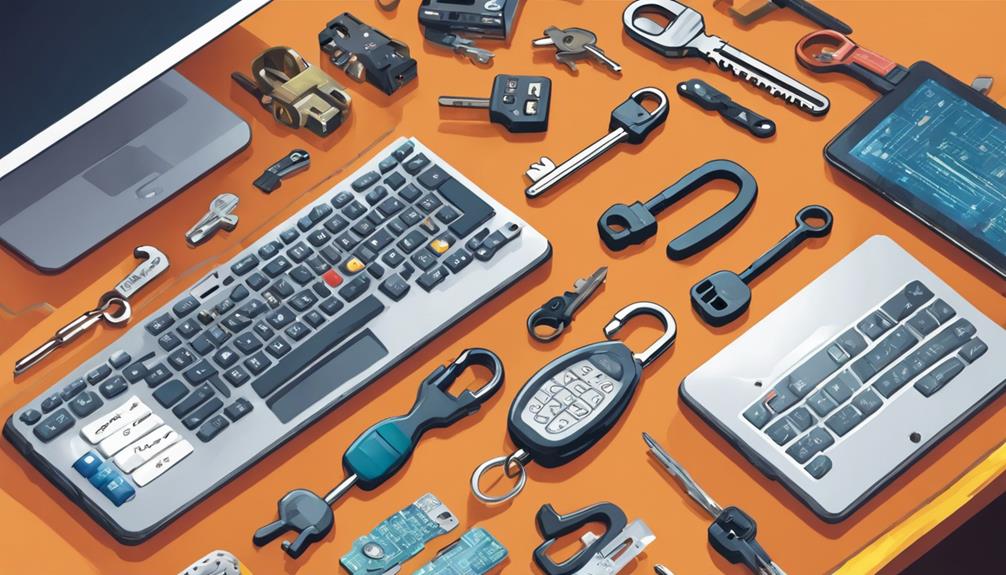
Programming your transponder key involves accurately syncing its electronic chip with your car’s immobilizer system to enable engine startup. Now, don’t fret if this sounds like rocket science! Automotive locksmiths are the wizards who make this magic happen with their mystical tools known as transponder key programmers. These pros can zap that electronic chip into submission, making it whisper sweet nothings to your car’s immobilizer system. While you might have the urge to unleash your inner tech guru and take on DIY programming, remember, it’s usually a safer bet to call in the cavalry for some professional help. After all, you wouldn’t want to end up just turning your car into an expensive driveway ornament!
DIY Vs Professional Programming
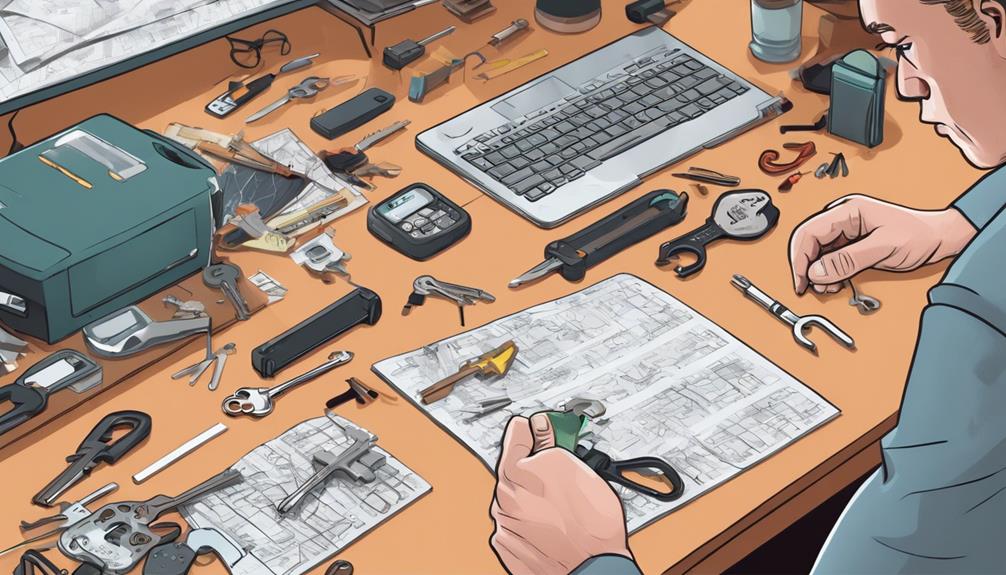
Deciding between DIY and professional programming of your transponder key hinges on weighing convenience against potential risks and costs. Sure, DIY programming might seem like a budget-friendly circus act, but each vehicle brand has its own hoop to jump through. Without the right know-how, you might end up juggling more problems than you can handle. On the other hand, professional locksmiths are the ringmasters of transponder key programming. They bring the right tools and expertise to perform accurate and efficient tricks that guarantee your car starts without a hiccup. Choosing local locksmith services might cost more upfront, but it saves you from the errors and additional costs that often accompany the DIY tightrope walk. So, why risk a tumble when help is just a phone call away?
Tools Required for Programming
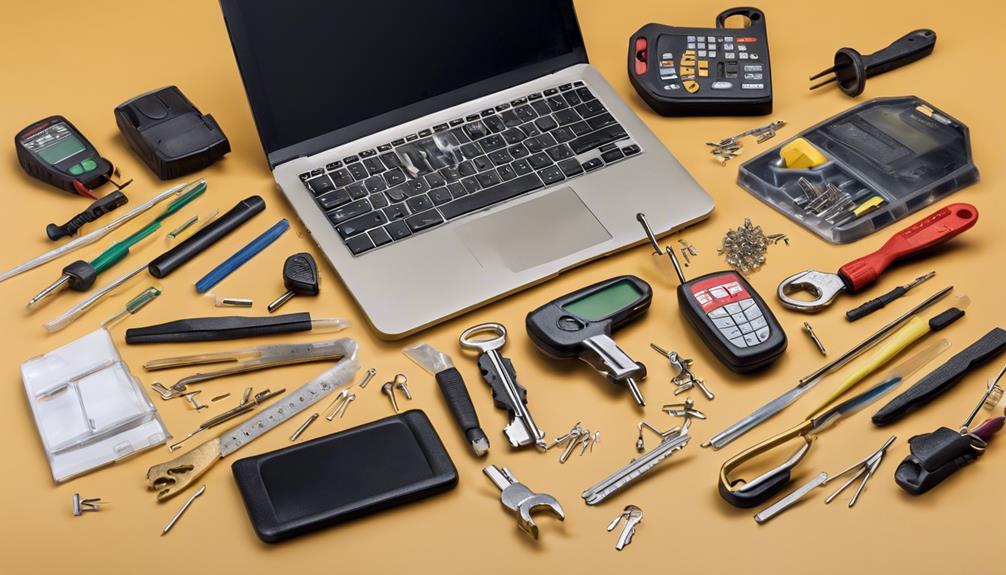
To guarantee successful programming of your transponder key, locksmiths rely on specialized tools, including key programmers, key cutting machines, and diagnostic equipment. It’s like having the secret sauce in the lock-picking world, but with way more tech. These aren’t your average gadgets; we’re talking about high-end, advanced tools that communicate with your car’s immobilizer system as if they’re old friends. Without these, your locksmith would be like a DJ without a turntable! Key programmers are the brainiacs, while key cutting machines are the artists, sculpting your key to perfection. And the diagnostic equipment? It’s the wise guru that ensures everything plays nice together. So, next time you need a transponder key, appreciate the tech wizardry your locksmith brings to the table!
Common Issues and Solutions
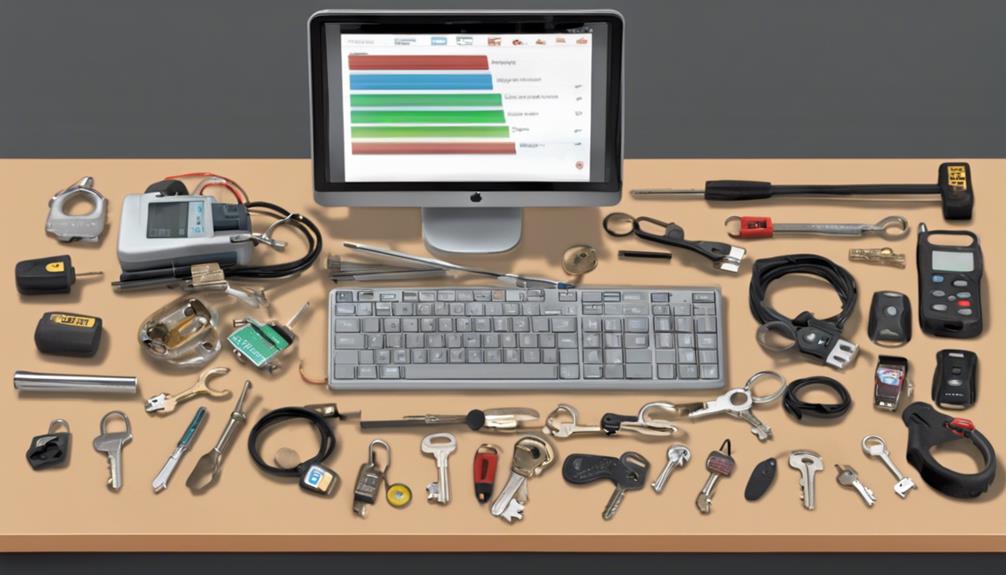
Despite their reliability, transponder keys can sometimes run into issues like dead batteries or chip damage. You know, because even your car’s keys apparently need a nap now and then! When your transponder key throws a tantrum and refuses to communicate with your car, leading to recognition issues, it’s time to call in the pros. A skilled locksmith can step in to diagnose these pesky problems. They’re wizards at reprogramming your key, which can clear up those annoying communication errors faster than you can say “Open Sesame!” Opting for a locksmith is not only cost-effective but also super convenient. So, next time your key gets moody, remember, help is just a phone call away!
Cost of Transponder Key Programming
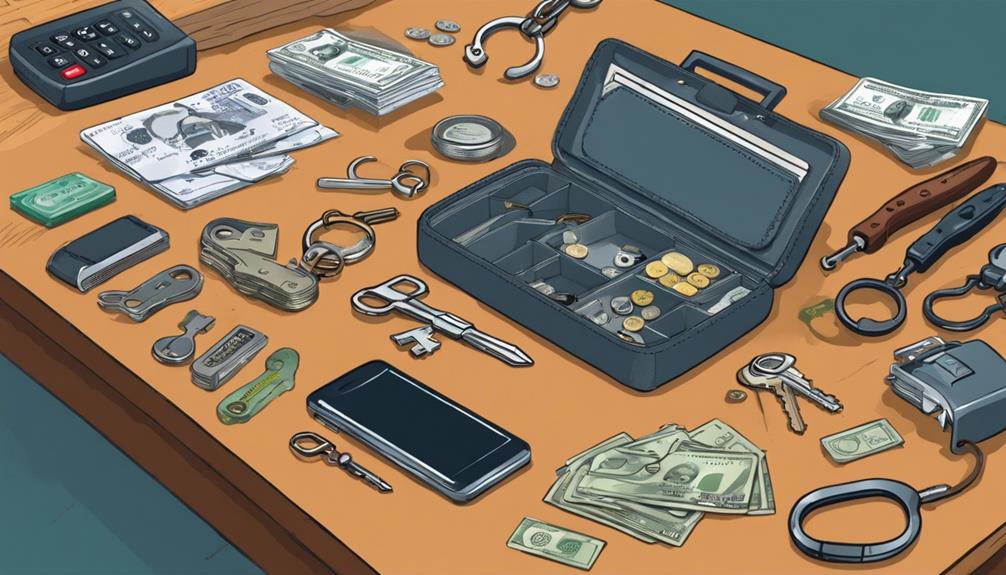
After addressing common issues, let’s look at what you might pay to have a transponder key programmed. Brace yourself; it’s not just a simple key-copying affair! The programming cost for your fancy transponder key can range from $50 to a whopping $200. Why such a spread? Well, it all depends on your vehicle make and model. You’re not just paying for a piece of metal; you’re investing in some high-tech gadgetry!
Opting for professional locksmith services can be a wallet-friendly move compared to dealership prices, especially when they throw in on-site programming. Remember, though, replacement keys aren’t cheap, and the complexity of the programming process can also tweak the final tab. So, shop smart and drive safe!
Choosing a Reliable Locksmith

When selecting a locksmith for programming your transponder key, it’s essential you verify their credentials first. Make sure they’ve got the experience needed to handle your specific key type. This guarantees you’re not left with a poorly programmed key that could compromise your car’s security.
Verify Locksmith Credentials
To guarantee you’re choosing a reliable locksmith, always verify their credentials, including certifications, licenses, and insurance. You wouldn’t trust just anyone to fiddle with your car’s brain, right? That transponder key isn’t going to program itself! Look for locksmiths certified by bigwigs like the ALOA—because an official-looking acronym screams expertise and legitimacy. Confirm they’ve got a license to drill (and program), plus insurance to cover any oopsies that might happen. Don’t just take their word for it; check online reviews and see what the world at large thinks of their transponder key wizardry. And hey, if your buddy raves about them too, even better! Always remember, a well-credentialed locksmith is less likely to turn your key drama into a horror story.
Assess Experience Level
Now that you’ve checked their credentials, evaluate a locksmith’s experience level to make sure they can efficiently program your transponder key. Experience isn’t just a fancy term—it’s the bread and butter of nifty transponder key programming. You don’t want just anyone fiddling with your car’s brain, right? Look for locksmiths who’ve been in the game long enough to handle a variety of vehicle makes and models with the dexterity of a cat burglar (but, you know, the legal kind). A reliable locksmith with ample expertise means you’ll get efficient service without the hair-pulling drama. So, do a little snooping! Check their track record and make certain they’ve successfully programmed keys faster than you can say ‘Where’d I park?’
Frequently Asked Questions
Can Transponder Keys Be Tracked by Gps?
You might think your transponder key is a mini-spy gadget, but it can’t be tracked by GPS. These keys are smart, not stalkers! They’re designed to help start your car and prevent theft by using communication via radio frequency, not GPS tracking. If you’re worried about where your car is or if it’s taken a joyride without you, you’ll need a separate GPS tracking device installed in your vehicle.
Do Transponder Keys Require Special Insurance Coverage?
You don’t need special insurance coverage just for your transponder key. While your regular auto insurance policy typically covers lost or stolen keys, some insurers might offer key replacement as an extra perk. It’s wise to check with your provider to see exactly what’s covered. Reviewing your policy will give you the full scoop on whether you’re protected in case your transponder key goes missing. Always better to know than guess!
Are Transponder Keys Waterproof?
No, transponder keys aren’t waterproof. They contain electronic chips that can be damaged by water. If you’re someone who tends to drop your keys in puddles or leave them in your swim trunks, beware! Water exposure can lead to malfunctions, requiring potentially costly reprogramming or replacement. To keep your key in tip-top shape, keep it dry and safe from water’s wrath. It’s a simple step to avoid a headache later!
How Long Do Transponder Keys Typically Last?
Transponder keys usually last between 5 to 10 years. The actual lifespan depends on how often you use them and the environment they’re in. You can extend their life with regular care and maintenance. Factors like battery life and general wear and tear also play a role. If your key starts acting up, it might need reprogramming or a chip replacement to get it back in action.
Can Transponder Keys Interfere With Other Electronic Devices?
Ever worry that your car’s transponder key might throw a tantrum and mess with your other gadgets? Fear not! These keys are quite the specialists, focusing solely on chatting with your car’s immobilizer system to prevent unauthorized joyrides. They operate on a unique frequency, making interference with other electronic devices highly unlikely. So, you can rest easy knowing your smartphone and laptop are safe from any rogue signals.



